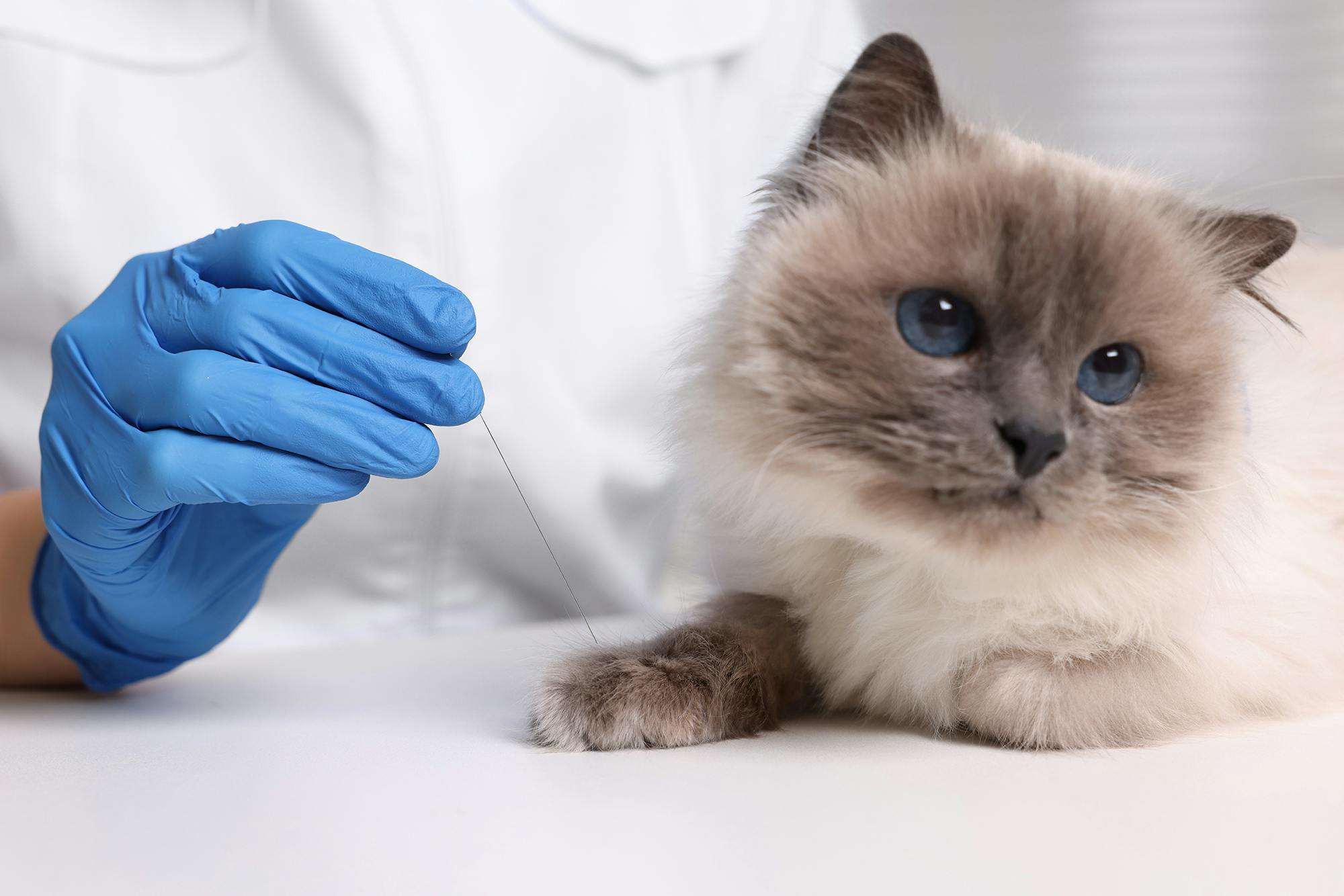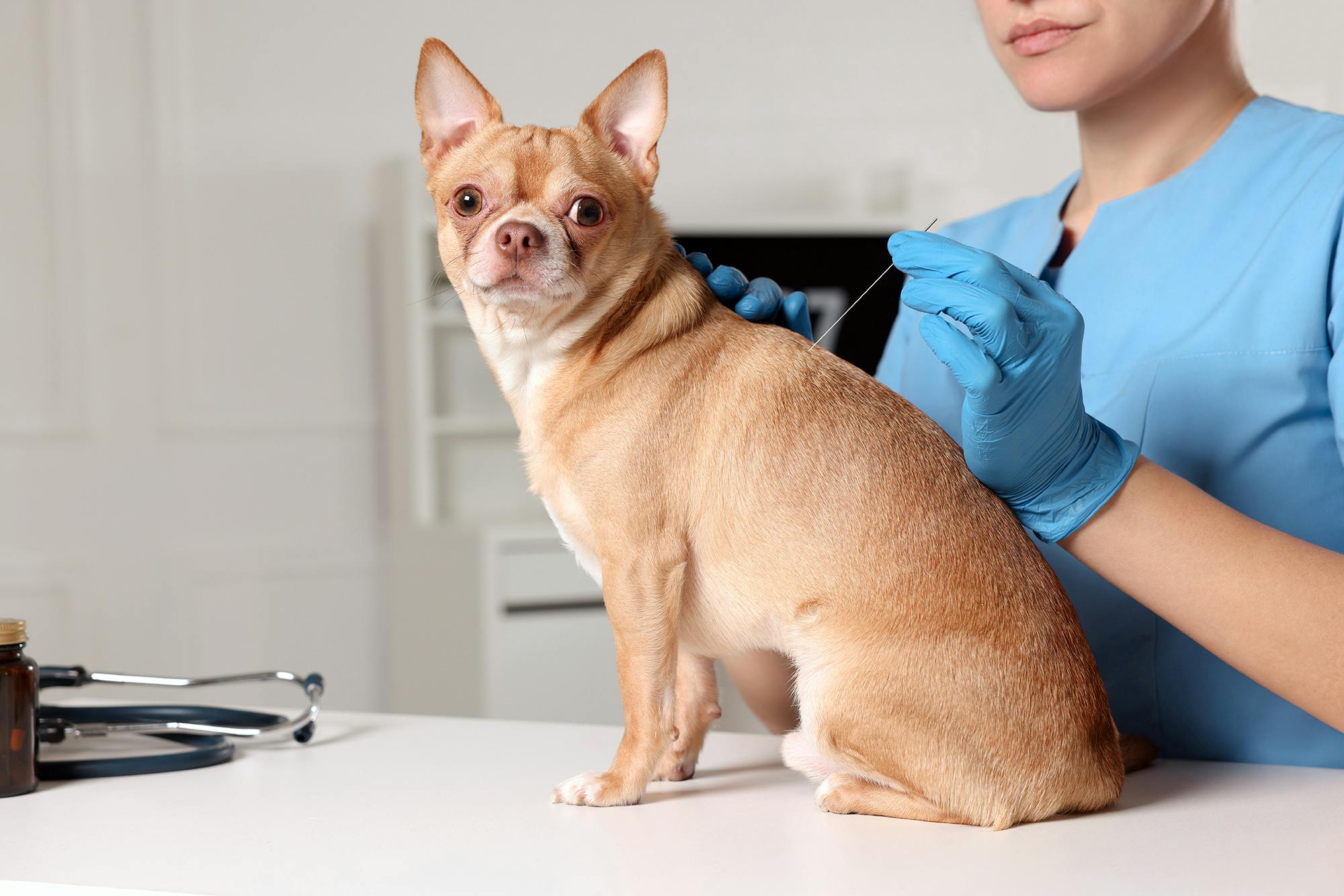As a pet parent, you always want the best for your dog or cat’s health and well-being. For some, that means combining conventional pet health treatments with alternative therapies, such as acupuncture. If you’ve ever thought about acupuncture and how it could benefit your pet, this blog post is for you!
What is acupuncture?
Acupuncture is a traditional Chinese medicine technique performed by inserting fine, sterile needles into specific points on the body. These points, known as acupuncture points or acupoints, correspond to pathways, or meridians, through which energy, or "chi," flows.
In Chinese medicine, the goal of acupuncture is to restore the balance of chi in the body, promoting overall health and well-being. In Western medicine, some doctors leverage acupuncture to stimulate nerves and muscles and promote natural painkillers and anti-inflammatories within the body.
Though acupuncture may be a relatively new offering at select veterinary clinics, the practice has been used on animals for thousands of years in China and India. As more pet parents become aware of the options—and more veterinary professionals obtain training and certification—acupuncture is growing in popularity as a complement to Western veterinary medicine or as an alternative in circumstances when a pet’s overall health may prohibit other treatment options.
Common uses for pet acupuncture
Following are some of the most common reasons pets may undergo acupuncture treatments:
- Pain management for both chronic conditions, such as arthritis or hip dysplasia, and acute issues like postoperative pain
- Respiratory problems, such as asthma or bronchitis
- Gastrointestinal problems, such as chronic diarrhea, constipation, or irritable bowel syndrome
- Dermatological issues, including allergic dermatitis and lick granulomas
- Neurological issues such as intervertebral disc disease (IVDD), epilepsy, and spinal cord trauma

What to expect during pet acupuncture treatment
If you decide to explore acupuncture for your dog or cat, the process is likely to follow these steps:
- Evaluation: The veterinary acupuncturist will review your pet’s records and assess their overall health to determine the appropriate acupuncture points and treatment plan to address their condition.
- Needle placement: Thin, sterile needles will be inserted into the selected acupuncture points. Most pets tolerate this procedure well, often experiencing minimal discomfort.
- Ongoing sessions: The number of treatment sessions required can vary based on the condition your pet is experiencing. Initially, your pet may need more frequent sessions; then, the number may taper based on your pet’s response.
- Monitoring and assessment: Throughout the treatment process, the veterinary acupuncturist will closely monitor your pet’s progress and make adjustments to the treatment plan as necessary.
What to look for in a veterinary acupuncturist
Unlike dermatology, internal medicine, or anesthesiology (to name a few examples), acupuncture is not a board-certified veterinary specialty. However, there are still reputable certification programs that ensure practitioners have undergone the necessary training. The American Veterinary Medical Association (AVMA) recognizes certificates in animal acupuncture from the following institutions:
- International Veterinary Acupuncture Society
- Colorado Veterinary Medical Association
- Chi Institute of Traditional Chinese Veterinary Medicine
Ideally, you’ll find an acupuncturist who works well with your primary veterinarian. This will ensure both doctors work together to provide the best care for your pet. There may be a veterinary acupuncturist who practices at your veterinary clinic, or your veterinarian may refer you to an outside doctor. Either way, you want open lines of communication and record sharing so your pet’s health and progress are known to everyone who is treating your pet.
Final thoughts
Acupuncture for dogs and cats can be a safe and effective alternative or complementary therapy with minimal side effects. If you think your pet may benefit from acupuncture, talk with your veterinarian about the pros and cons.
Sources:















